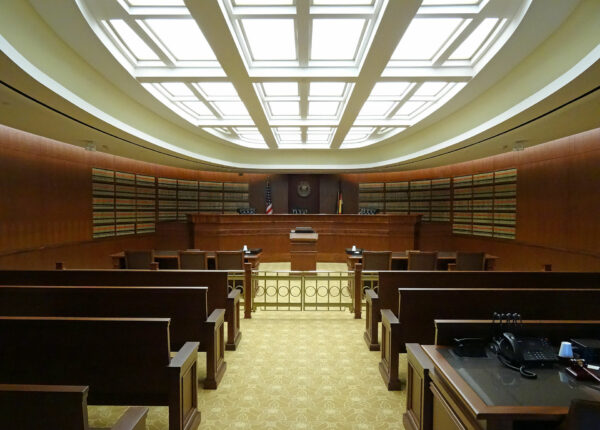A federal judge in Colorado issued a ruling Tuesday that restricts the ability of Immigration and Customs Enforcement officers to arrest unlawful migrants without a warrant unless they can clearly demonstrate probable cause that the individual is likely to flee before a warrant can be secured. The decision immediately drew criticism from the Department of Homeland Security, which denounced the ruling as judicial overreach that undermines lawful immigration enforcement at a time when the United States is grappling with a historic border crisis.
The ruling stems from a lawsuit filed by the ACLU of Colorado and several immigration attorneys on behalf of four migrants who were arrested earlier this year by ICE officers who did not possess warrants. All four individuals, including asylum-seekers, had lived in the United States for more than a decade. In his opinion, U.S. District Senior Judge R. Brooke Jackson said the plaintiffs had “deep and longstanding ties to their communities,” including family members, employment, and church involvement. He argued that ICE officers had no reasonable basis to conclude these individuals were likely to flee.
Jackson ruled that ICE may conduct warrantless arrests only if officers can articulate probable cause that the individual will escape before a judge can issue a warrant, and that such reasoning must be documented. “Mere presence within the United States in violation of United States immigration law is not, by itself, sufficient,” Jackson wrote, asserting that unlawful presence alone cannot justify deeming someone a flight risk. He went as far as suggesting that the four plaintiffs have a “categorical right to be free from contact with ICE, removal proceedings, or even immigration detention.”
At the same time, the judge blamed ICE officers directly for harm resulting from the arrests, claiming such consequences are “the direct result of defendants’ ongoing violation of the law.” The lawsuit was filed on behalf of 43-year-old Refugio Ramirez Ovando, 19-year-old Caroline Dias Goncalves, 36-year-old “J.S.T.,” and 32-year-old “G.R.R.”
The ACLU accused ICE of “scrambling to fill arbitrary quotas set by the Administration,” alleging that the enforcement push created “chaos and terror” in Colorado neighborhoods. They claimed that the state’s roughly 169,000 illegal immigrants, along with other Latino residents, now “live in fear” of what they characterize as indiscriminate ICE practices.
DHS spokesperson Tricia McLaughlin forcefully rejected those claims, calling Jackson’s ruling “activist” and the accusations of racial profiling “disgusting, reckless and categorically FALSE.” She said the government is reviewing its options and may appeal the decision, noting that the ruling imposes unrealistic restrictions on immigration officers tasked with enforcing federal law.
The controversy comes as President Donald Trump’s administration has intensified its crackdown on illegal immigration following his return to office. ICE has been deployed to multiple Democrat-run cities, including Los Angeles, Chicago, and Charlotte, as part of a national effort to arrest criminal aliens and remove individuals who have remained in the United States unlawfully for years. Supporters argue that Trump is finally enforcing immigration laws abandoned under the previous administration, while opponents insist the effort is too aggressive.
Jackson’s ruling now sets up a potential legal showdown over how much authority ICE officers should have in the field when dealing with individuals who have no legal right to remain in the country. As immigration enforcement ramps up nationwide, the case is expected to play a significant role in shaping how far judges can go in restricting the executive branch’s ability to secure the border and enforce federal law.
[READ MORE: Interior Department Announces Higher National Park Fees for Foreign Visitors]








